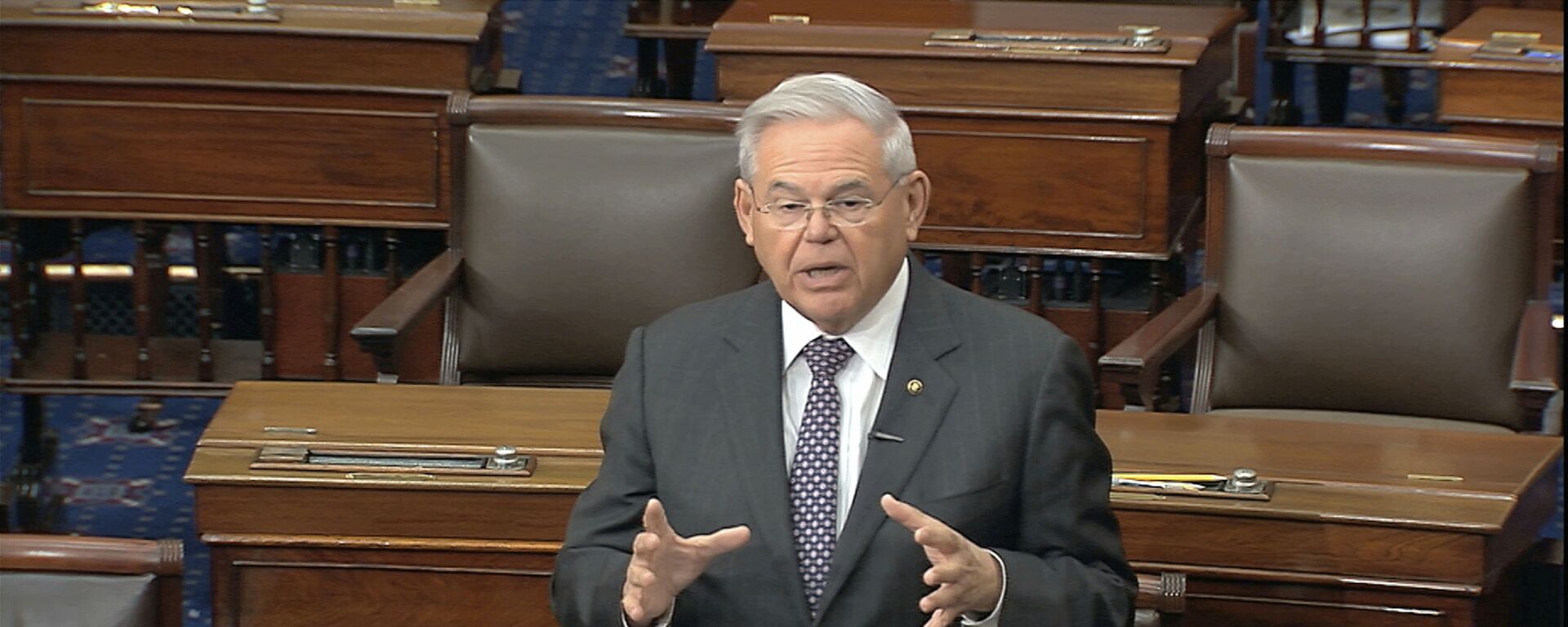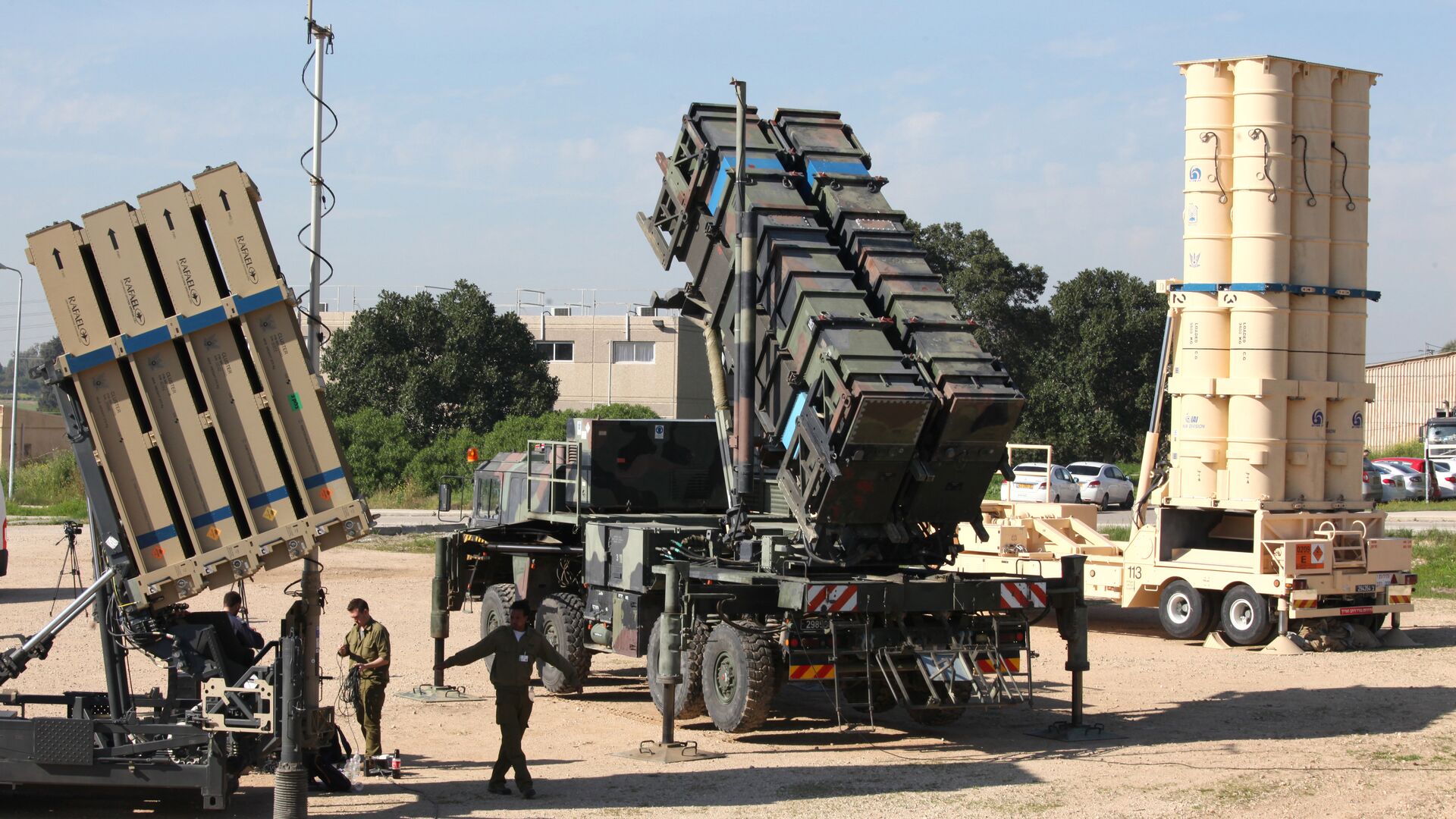https://sputnikglobe.com/20210930/erdogan-reveals-why-turkey-bought-russias-s-400-missile-systems-instead-of-american-patriots-1089547474.html
Erdogan Reveals Why Turkey Bought Russia’s S-400 Missile Systems Instead of American Patriots
Erdogan Reveals Why Turkey Bought Russia’s S-400 Missile Systems Instead of American Patriots
Sputnik International
Ankara’s 2017 decision to pen a $2.5 billion contract with Moscow on the purchase of Russia’s most advanced road-mobile missile-based air defense system... 30.09.2021, Sputnik International
2021-09-30T11:37+0000
2021-09-30T11:37+0000
2021-09-30T11:45+0000
recep tayyip erdogan
s-400
patriot missile system
https://cdn1.img.sputnikglobe.com/img/104570/75/1045707529_0:271:5340:3275_1920x0_80_0_0_0f29389b2269e839bbf74f143f4685e3.jpg
Ankara would not have had to buy S-400s from Russia if “the Americans sold Turkey a Patriot missile defence system” instead, Turkish President Recep Tayyip Erdogan has said.“We buy our own weapons,” Erdogan said, speaking to the New York Times on the sidelines of the United Nations General Assembly last week.Erdogan also emphasised that despite the tensions, Ankara’s ties with the US remain strong, and significant. “Turkey has long US ties. This will be reinforced and has to be protected,” he said.The Turkish government has indicated its intention to purchase a second batch of S-400s from Russia sometime in the future. Its first batch, delivered in 2019, sparked a major crisis in Turkey-US defence ties, with the United States pushing Ankara out of the F-35 fighter jet development programme, barring it from purchasing the fifth-gen fighter jets, and, in late 2020, sanctioning Turkey’s Presidency of Defence Industries – a civilian institution managing the nation’s domestic arms sector.The US has consistently denied that it ever refused to sell Turkey its Patriot systems before it purchased the Russian systems. However, according to business media, Ankara froze talks with Washington on Patriots and went to Russia after the US side refused to sell the air defence systems using a loan, and failed to include a clause on technology sharing in the contract. Last year, Turkish Defence Minister Hulusi Akar said his country was still open to buying Patriots from the United States. However, Washington has indicated in the past that it will not sell Patriots to Turkey now that it has S-400s.On Monday, US Senate Foreign Relations Committee Chairman Bob Menendez warned that Washington would baste Turkey with new sanctions if it acquires additional S-400s.“Sanctions are mandated for any entity that does significant business with the Russian military or intelligence sectors. Any new purchases by Turkey must mean new sanctions,” the lawmaker stressed.In addition to Turkey, the US has already used the CAATSA sanctions against China, and threatened to target India, which has its own $5.5 billion S-400 deal with Moscow, as well. New Delhi is expected to receive its first batch of S-400s in November.Erdogan met with Russian President Vladimir Putin in Sochi, Russia on Wednesday, where the two were said to have discussed a range of bilateral issues. Ahead of his visit, Erdogan promised that he would raise the S-400 issue with Putin when they met. After the meeting, he told reporters that "the process of [acquiring] S-400s continues" and that "we are not talking about steps back."
https://sputnikglobe.com/20210928/us-senator-menendez-urges-new-sanctions-on-turkey-if-it-acquires-more-russian-weapons-1089467025.html
Sputnik International
feedback@sputniknews.com
+74956456601
MIA „Rossiya Segodnya“
2021
News
en_EN
Sputnik International
feedback@sputniknews.com
+74956456601
MIA „Rossiya Segodnya“
Sputnik International
feedback@sputniknews.com
+74956456601
MIA „Rossiya Segodnya“
recep tayyip erdogan, s-400, patriot missile system
recep tayyip erdogan, s-400, patriot missile system
Erdogan Reveals Why Turkey Bought Russia’s S-400 Missile Systems Instead of American Patriots
11:37 GMT 30.09.2021 (Updated: 11:45 GMT 30.09.2021) Ankara’s 2017 decision to pen a $2.5 billion contract with Moscow on the purchase of Russia’s most advanced road-mobile missile-based air defense system sparked the ire of its allies in NATO, and eventually prompted Washington to boot Turkey out of the F-35 fighter programme and slap sanctions on the country’s military industry.
Ankara would not have had to buy S-400s from Russia if “the Americans sold Turkey a Patriot missile defence system” instead, Turkish President Recep Tayyip Erdogan has said.
“We buy our own weapons,” Erdogan
said, speaking to the New York Times on the sidelines of the United Nations General Assembly last week.
“I think it was worth it,” the Turkish president added, when asked to comment on the tensions caused by Ankara’s decision to introduce a sophisticated Russian-made weapon into a NATO country’s air defence system. “We can strengthen our defence as we please,” he stressed.
Erdogan also emphasised that despite the tensions, Ankara’s ties with the US remain strong, and significant. “Turkey has long US ties. This will be reinforced and has to be protected,” he said.
The Turkish government has indicated its intention to purchase a second batch of S-400s from Russia sometime in the future. Its first batch, delivered in 2019, sparked a major crisis in Turkey-US defence ties, with the United States pushing Ankara out of the F-35 fighter jet development programme, barring it from purchasing the fifth-gen fighter jets, and, in late 2020, sanctioning Turkey’s Presidency of Defence Industries – a civilian institution managing the nation’s domestic arms sector.
The US
has consistently denied that it ever refused to sell Turkey its Patriot systems before it purchased the Russian systems. However, according to business media, Ankara froze talks with Washington on Patriots and went to Russia
after the US side refused to sell the air defence systems using a loan, and failed to include a clause on technology sharing in the contract. Last year, Turkish Defence Minister Hulusi Akar said his country was still open to buying Patriots from the United States. However, Washington has indicated in the past that it will not sell Patriots to Turkey now that it has S-400s.
On Monday, US Senate Foreign Relations Committee Chairman Bob Menendez warned that Washington would baste Turkey with new sanctions if it acquires additional S-400s.
“We were crystal clear when we wrote the [Countering America’s Adversaries Through Sanctions Act],” Menendez
said, referring to the 2017 law aimed in part at sabotaging the export of sophisticated Russian weaponry abroad.

28 September 2021, 00:00 GMT
“Sanctions are mandated for any entity that does significant business with the Russian military or intelligence sectors. Any new purchases by Turkey must mean new sanctions,” the lawmaker stressed.
In addition to Turkey, the US has already used the CAATSA sanctions against China, and
threatened to target India, which has its own $5.5 billion S-400 deal with Moscow, as well. New Delhi is expected to receive its first batch of S-400s in November.
Erdogan
met with Russian President Vladimir Putin in Sochi, Russia on Wednesday, where the two were said to have discussed a range of bilateral issues. Ahead of his visit, Erdogan
promised that he would raise the S-400 issue with Putin when they met. After the meeting, he
told reporters that "the process of [acquiring] S-400s continues" and that "we are not talking about steps back."


